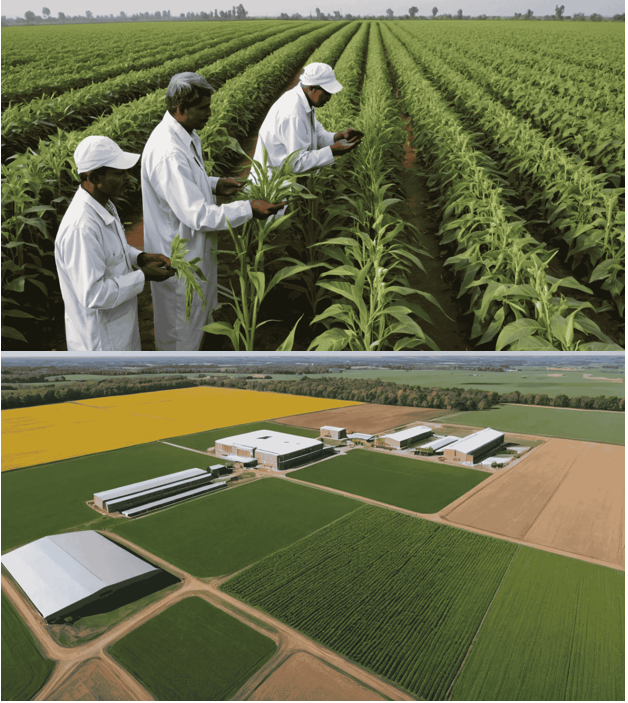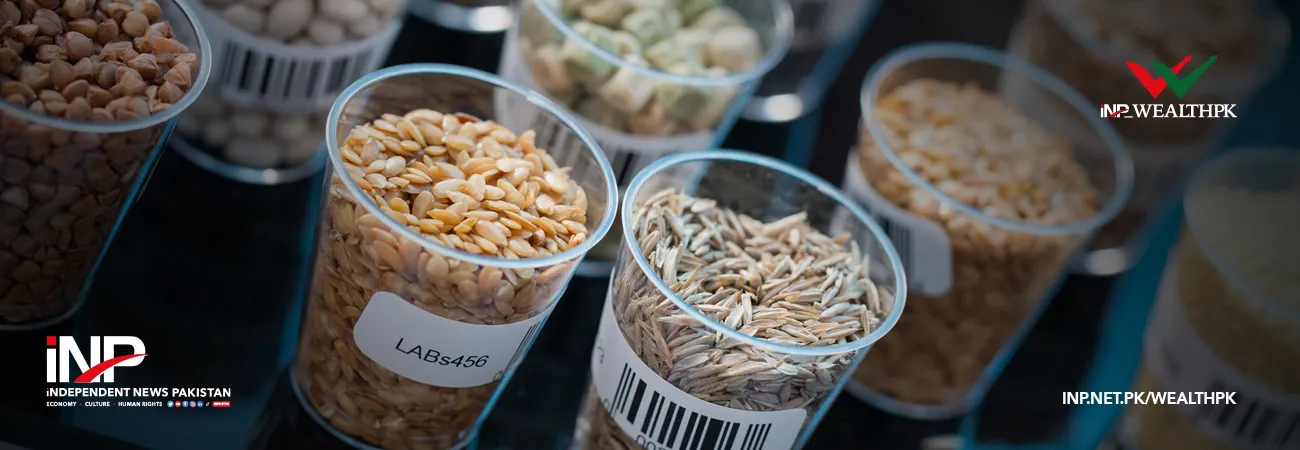INP-WealthPk
Muhammad Saleem
The development and commercialisation of genetically modified seeds is a boon for both farmers and the agriculture sector of Pakistan. Dr Ahmed, a faculty member at the University of Agriculture Faisalabad, highlighted recent progress in genetically modified (GM) crops in Pakistan. He noted that since its introduction the BT cotton variety has been a significant case study for them. “With the help of this variety, we have successfully increased yields and reduced pesticide use in various areas.” He said that currently, about 65% of Pakistan’s cotton production is genetically modified. “However, we need to improve the situation as we're still facing issues like pink bollworm resistance. Besides, climate change is also a challenge, and we have to work on developing climate-resistant varieties, especially for wheat and cotton.”
“We have to introduce genetically modified varieties both for irrigated and barren areas to cater to the needs of Pakistan’s rapidly increasing population,” he said. Ahmed said drought-tolerant varieties of major crops like wheat, rice and cotton are crucial. “One can check that farmers of Punjab and Sindh are battling for their share of water to irrigate their lands efficiently. Solar-energy has emerged as a valuable resource for farmers with lands away from the canals. However, its high cost makes it inaccessible to many,” he pointed out. Ahmed said that agriculture scientists need to expedite their work on developing salt-tolerant varieties for areas affected by waterlogging and salinity, particularly in Sindh and Punjab. “Emerging challenges are posing serious threats to our current cultivation patterns and crops, demanding more funding for research and effective collaboration with international institutions.
However, our response to these challenges is slow compared to the rest of the world,” he said. The Faisalabad varsity’s faculty member said success requires coordinated efforts across research, regulation and farm-level implementation. “Without such efforts, we cannot compete with the rest of the world, which is reaping the benefits of technological advancements.” He called for targeted policies to address economic disparities in the adoption of GM crops, urging the government to subsidize GM seeds for small farmers. Ahmed mentioned that farmers need access to credit facilities as existing agricultural loans do not cover the higher input costs of GM crops. Fahad Hussain, a progressive farmer, shared the practical challenges farmers face with GM crops.
He cited seed quality and its cost as major Hurdles, explaining that while genuine BT cotton seeds gave good yields, counterfeit seeds remain a pervasive issue. “Our departments have failed to control the unscrupulous elements flooding the market with counterfeit seeds,” he said. “We need better seed distribution systems and local testing,” he suggested. Hussain said that many small farmers, often illiterate, struggle to distinguish between authentic and counterfeit seeds. He also pointed out that not all approved GM varieties are suitable for every agricultural zone. He explained that the issues faced by farmers in Sindh differ from those in Punjab. “Continued efforts are needed to make GM varieties suitable for all areas, as information technology and modern tools are rapidly transforming the agriculture sector,” he added.

Credit: INP-WealthPk













